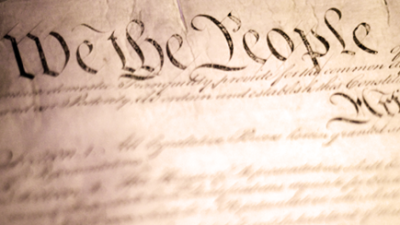Birthright Citizenship
What is Birthright Citizenship?
Birthright citizenship is a legal principle under which citizenship is automatically granted to individuals upon birth. There are two forms of birthright citizenship: ancestry-based citizenship and birthplace-based citizenship. Birthplace-based citizenship, which grants citizenship based on place of birth, is formally referred to as jus soli, a Latin term meaning "right of the soil." In the United States, birthright citizenship is guaranteed by the Fourteenth Amendment to the Constitution. Specifically, it states that "all persons born or naturalized in the United States, and subject to the jurisdiction thereof, are citizens of the United States and of the state wherein they reside." This principle was confirmed by the 1898 Supreme Court case United States v. Wong Kim Ark, which clarified that children born in the U.S. to immigrant parents are citizens, regardless of their parents' immigration status. The U.S. employs a combination of:- Unrestricted birthplace-based citizenship (jus soli): Granting citizenship to anyone born on U.S. soil, regardless of their parents' status, with exceptions like children of foreign diplomats.]
- Restricted ancestry-based citizenship (jus sanguinis): Extending citizenship to children born abroad to U.S. citizens, provided statutory requirements are met.
Birthright Citizenship in the United States
- Birthright Citizenship
- March 14, 2025
This fact sheet explains birthright citizenship, the Fourteenth Amendment, and its interpretations. Who is eligible for birthright citizenship? Can birthright citizenship be…
Read More
Birthright Citizenship: What It Is and Why We Need to Preserve It
- Birthright Citizenship
- August 21, 2015
There has been a media frenzy over one of the more draconian components of…
Read MoreBirthright Citizenship: Myths, Facts and Why It Matters
- Demographics
- September 16, 2009
The issue of birthright citizenship, although not traditionally a sexy topic, is not without…
Read More
Senators Graham and Kyl Buy Tickets to the Birthright Citizenship Dog and Pony Show
Over the weekend, the second-ranking member of the Senate Republican leadership, Senator Jon Kyl (R-AZ) joined Senator Lindsey Graham (R-SC) in considering a repeal of birthright citizenship laws through a constitutional amendment. Birthright citizenship, guaranteed by the Fourteenth Amendment to the Constitution, is the cornerstone of American civil rights and affirms that, with very few exceptions, all persons born in the U.S. are U.S. citizens—regardless of their parents' citizenship. Although the Supreme Court has consistently upheld birthright citizenship, year after year restrictionist groups and legislators trot out the “repeal birthright citizenship” mantra in the hopes of adding a few more immigration extremists to their dog and pony show audience. Read More

More Right-Handed Pot Stirring: Internal USCIS Draft Memo Exploited for Political Gain
Conspiracy theorists hate it when no one pays attention. Witness last month’s letter to President Obama in which eight Republican Senators accused him of planning to circumvent the will of Congress through a regulatory grant of “amnesty” suggesting that plans were afoot in the Department of Homeland Security to make it happen. Despite their mock outrage, the letter barely made a ripple in the immigration debate. And just a few days after his speech on immigration, President Obama unequivocally stated that he wanted a real solution to our immigration crisis, rejecting both a free pass for all undocumented immigrants and a scorched earth, deport them all approach. Read More

New Reports Describe the “Green-Washing” of Nativist Hate
In a new report, the Southern Poverty Law Center (SPLC) describes the rejuvenated efforts of anti-immigrant groups to repackage themselves as environmentalists who are trying to save the United States from the supposed ecological ills of “over-population.” According to the report, entitled Greenwash: Nativists, Environmentalism & the Hypocrisy of Hate, the two-faced nature of these efforts is “astounding” given the dismal environmental records of the organizations and political candidates to whom nativist groups tend to contribute funds. Moreover, this “green-washing” of the nativist agenda also amounts to a white-washing of the anti-immigrant movement’s white-nationalist roots. Read More

Ending Birthright Citizenship Won’t Solve Our Immigration Problems
The people who brought you SB1070 in Arizona are now preparing to challenge one of the fundamental principles of the U.S. Constitution—birthright citizenship. Birthright citizenship, or the principle of jus soli, means that any person born within the territory of the U.S is a citizen, regardless of the citizenship of one’s parents. This principle was established well before the U.S. Constitution, and was enshrined in the Fourteenth Amendment. It was necessary to include the citizenship clause in the Fourteenth Amendment because the Supreme Court’s Dred Scott decision of 1857 had denied citizenship to the children of slaves. Following the Civil War, the Fourteenth Amendment righted that injustice and became the foundation for civil rights law, equal protection, and due process in the United States. Read More

The Folly of Repealing Birthright Citizenship
Washington D.C. – This Sunday, the editorial pages of the Washington Post included a piece penned by journalist George Will on the topic of birthright citizenship. Will highlights a scholar who argues against giving those born in the United States birthright citizenship and characterizes the repeal of a 150… Read More

Made in America: Myths and Facts about Birthright Citizenship
The 14th Amendment to the Constitution is enshrined in U.S. history as the cornerstone of American civil rights, ensuring due process and equal protection under the law to all persons. Read More
Make a contribution
Make a direct impact on the lives of immigrants.

